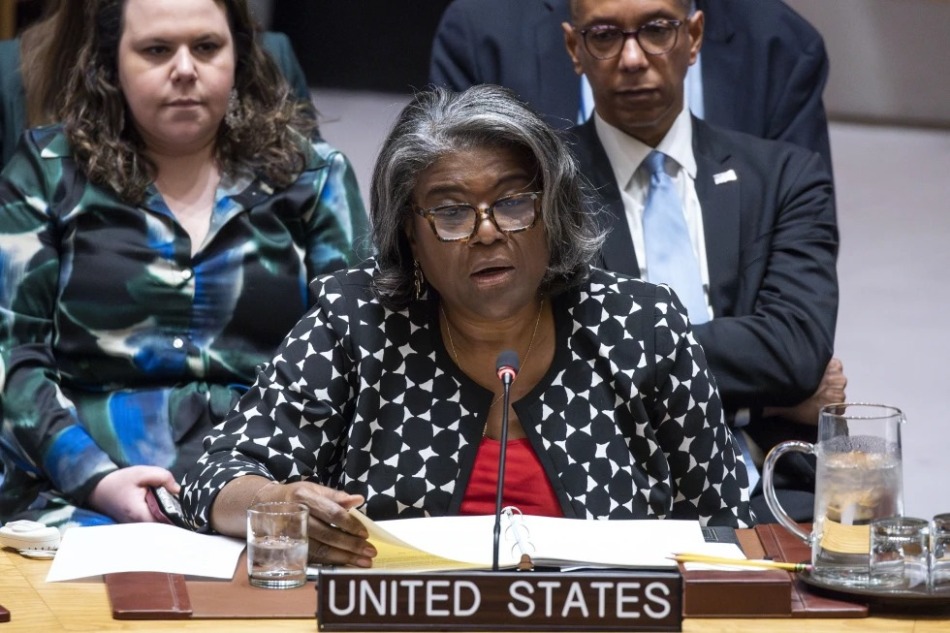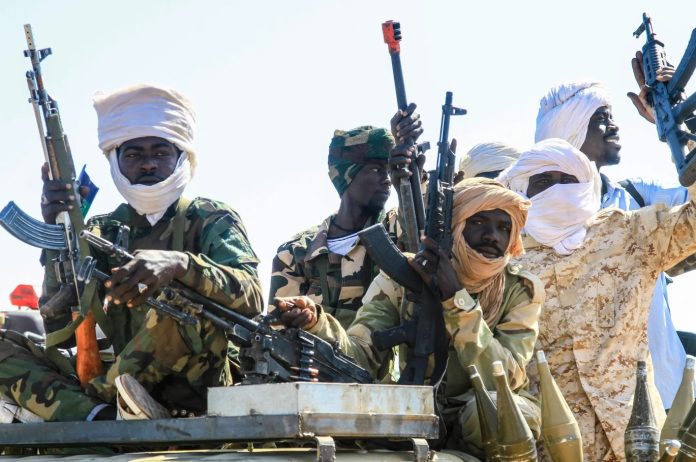Tens of thousands of people are reported to be fleeing areas of El-Fasher, in Sudan, as civilian casualties continue to mount. Various humanitarian organizations are warning of a humanitarian disaster if attacks continue, with the already dire situation growing steadily worse each day.
The Last Battle for Darfur
The city of El-Fasher, the capital of North Darfur, has witnessed attacks by the paramilitary Rapid Support Forces (RSF) since early April. What began as small clashes has turned into much more, as the RSF pushes deeper into the city.
El-Fasher is particularly important, as it is the last city in Darfur that is still controlled by the Sudanese Armed Forces (SAF), the military government. Furthermore, the city contains a high population of internally displaced persons (IDPs), numbering several hundred thousand.
Now, many of these people have once again been displaced amidst the RSF’s assault upon El-Fasher.
On May 22nd, the RSF launched an attack on the Abu Shouk refugee camp. Much of it was looted, and a number of civilians were killed and injured in the attack. By the next day, on May 23rd, approximately 60% of the camp’s approximately 400,000 people had fled. Abu Shouk has suffered extensive damage, with the RSF carrying out several large bombings against the camp.
#Sudan ??: the Abushok refugee camp in the city of #ElFasher was on fire this morning as #RSF militants bombarded the area with heavy weaponry, trying to force their way into the city. pic.twitter.com/65A899CIdh
— Thomas van Linge (@ThomasVLinge) May 23, 2024
Continual and indiscriminate bombings in the city carried out by both sides have caused extensive civilian casualties and closed all but one of the city’s hospitals. According to the medical charity Doctors Without Borders (MSF), at least 85 people who have died have been brought to the South El-Fasher hospital. There are likely more dead that have not been brought to the hospital. As is with the remainder of the war in Sudan, an accurate total casualty count is difficult to reach, in large part due to the chaos of the situation and a lack of information gathering services.
Fresh clashes on May 25th killed another 22 civilians, with an additional 110 injured, according to Ibrahim Abdallah Khater, the General Director of Health in North Darfur State. The extensive casualties are overwhelming the South El-Fasher hospital, who is running low on supplies.
Amidst the combat, both sides have been accused of war crimes. Notably, the RSF has been accused of once again carrying out ethnic-based killings. Throughout the present war, as well as in previous conflicts, the RSF has continually been accused of carrying out attacks which target ethnic minorities, and non-Arabs in the area. The RSF, along with the Janjaweed militia, are one of the main participants in the Darfur genocide.

The RSF has thus far seized control of several areas in the east of the city, further controlling a number of the areas surrounding the city. Prior to launching their assault, the RSF made attempts to encircle the city, however they do not have it surrounded as of the present day.
Alarm Bells Ringing
Since before the RSF’s assault began up until now several different humanitarian organizations have been raising the alarm over the situation in El-Fasher, which has been far worsened since the RSF’s assault began.
As formerly mentioned, El-Fasher has become host to a population of several hundred thousand IDPs. Many of these people have gone, in essence, entirely without aid for lengthy periods of time. Thus far in 2024, only 39 aid trucks have entered El-Fasher.
While one of the main reasons behind this is the insecurity throughout the country, and combat making transit difficult, organizations such as the UN have reported a series of bureaucratic impediments as one of the greatest restrictions regarding aid delivery.
As things presently stand, there remains a significant amount of aid, particularly life-saving medicine, in the city of Port Sudan. Port Sudan is controlled by the government.
The UN has made repeat calls for many of these bureaucratic impediments to be removed. The Sudanese government has made little effort to address this matter.
With the absence of aid, many of these organizations warn that a humanitarian disaster is around the corner in the city. The high population of civilians who are already suffering from acute hunger is steadily coming further under threat as they are pushed into smaller areas within El-Fasher, or forced to flee entirely to an uncertain destination.
The story of El-Fasher is just one of many in Sudan, where over 18 million people suffer from hunger, and over nine million people being internally displaced. The vast majority of those internally displaced have been displaced from the present war. An additional two million have fled Sudan entirely, mostly residing in neighbouring countries.
Beyond the humanitarian situation, several organizations are also worried that a seizure of El-Fasher by the RSF would permit them to continue genocidal practices on the city’s population. This is a fear among many civilians as well.
Outside Influences
On Friday, May 24th, the UN Security Council held a session at Sudan’s request in order to discuss Sudan’s complaint against the UAE, which accuses them of supplying the RSF with weaponry. Sudan has long accused the UAE of doing so, which the UAE has routinely denied.
The session held a presence from both Sudan and the UAE.
During the session, US Ambassador to the UN, Linda Thomas Greenfield, issued condemnations to both sides of the war.

Namely, she condemned the RSF’s assault upon El-Fasher. Prior to the assault, the US had also warned that it would be a dangerous escalation, and had called upon the RSF to avoid attacking the city.
“The Rapid Support Forces continues to tighten its siege on El Fasher – stoking military escalation, cutting off critical lifelines, and inching closer to launching a large-scale massacre not seen since the conflict began” -US Ambassador to the UN, Linda Thomas Greenfield
Further on this matter, she alluded to the US potentially instating more sanctions against companies and individuals involved with the RSF. Throughout the war, the US has struck a number of different companies that are either associated with or directly controlled by the RSF, as well as key leadership, with sanctions. The EU and Canada have taken similar measures, oftentimes against many of the same companies and individuals.
The ambassador also demanded that “external actors” cease supplying either side of the war. Though, notably given the context of the session, she did not level this accusation against the UAE itself.
“External backers of the belligerents continue the flow of weapons into the country in flagrant violation of the UN arms embargo – further perpetuating the war, fracturing the country, and destabilizing the region. Any individual or country that continues to provide support to either side bears responsibility for the atrocities they commit” -US Ambassador to the UN, Linda Thomas Greenfield
In issuing a condemnation to the Sudanese government, the ambassador critiqued the SAF’s continual obstruction of humanitarian aid, in particular calling upon the SAF to open the Adre border crossing, on Sudan’s border with Chad.
The Sudanese government a number of weeks ago stated that they would be allowing the entry of aid to Sudan through Chad and South Sudan, for the first time since the war began in April of last year. However, many of these crossings remain closed, and aid entry through the little points that are open remains slow.
“Yet the Sudanese Armed Forces (SAF) continues to systematically obstruct lifesaving aid, starving millions of innocent civilians caught in the middle of this war. The SAF must open the Adre border crossing immediately and remove all obstacles to humanitarian operations so communities in need may be reached” -US Ambassador to the UN, Linda Thomas Greenfield
The US’ expressions of frustration come after they had, last month, attempted to revive peace processes aimed at creating dialogue to end the war. These attempts fell flat, and no further peace conferences have been held.


